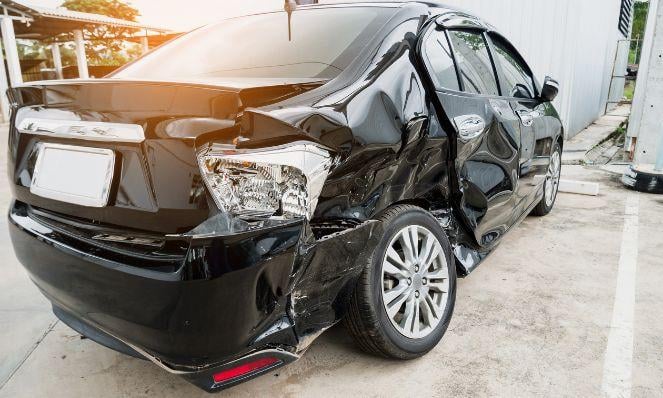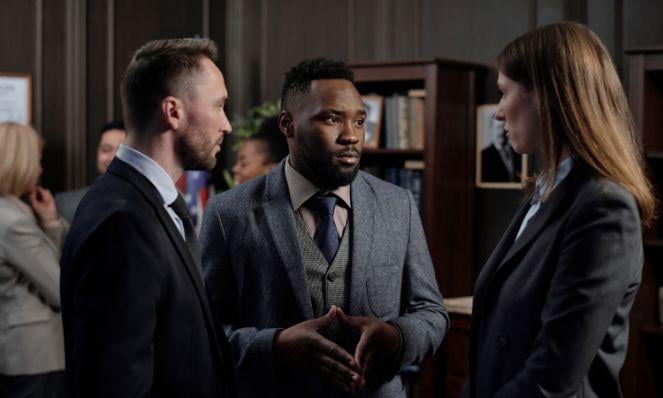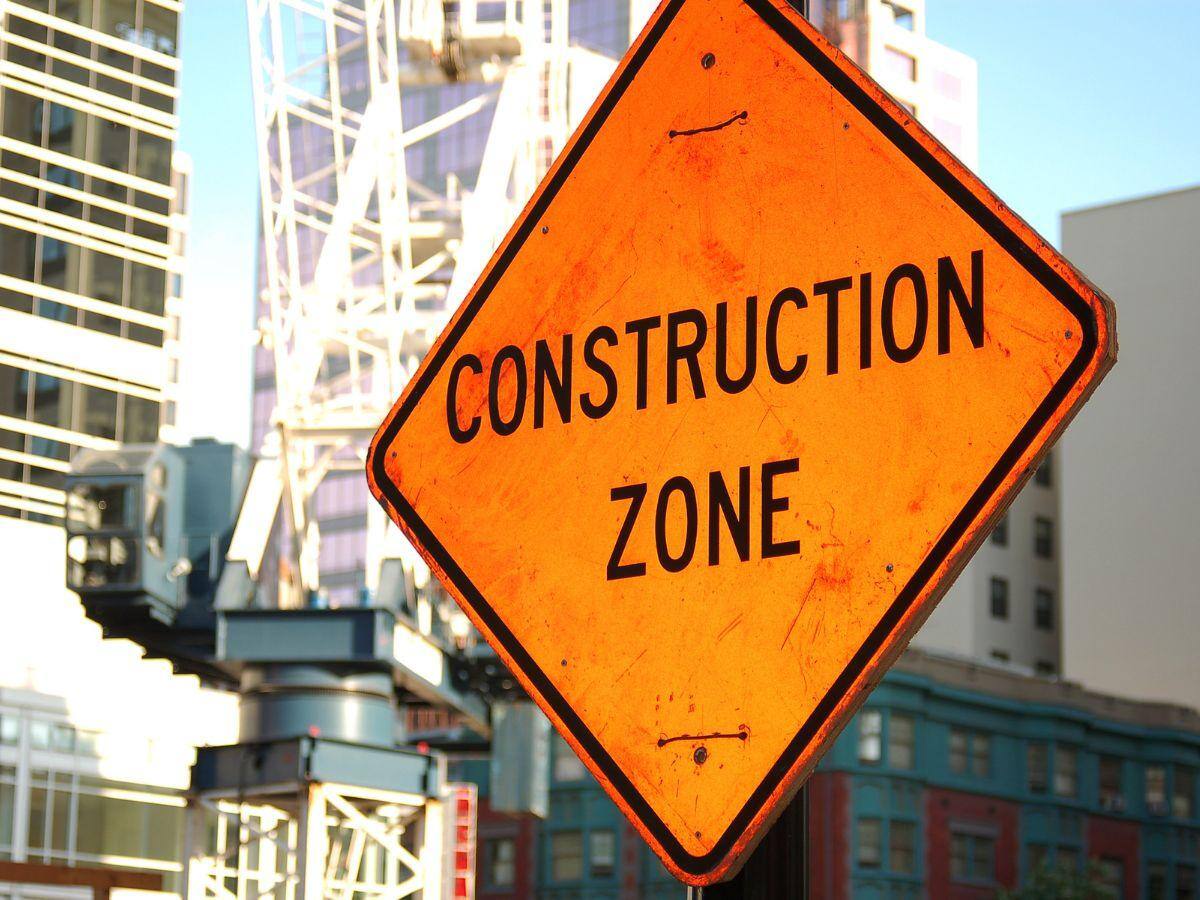The Law Offices of Julian Lewis Sanders & Associates is designed to help you navigate the aftermath of a traffic accident. Car accidents can be traumatic experiences, leaving individuals overwhelmed and unsure of what steps to take next. That is why we offer a free, no-obligation consultation - to help you effortlessly guide through a complex legal process.
Whether you've been involved in a minor fender bender or a more severe collision, understanding your rights and legal options is crucial for ensuring fair compensation for your injuries and damages.
In this guide, we'll address common questions and concerns regarding car accidents in Georgia, including legal definitions, fault determination, settlement timelines, the importance of car accident representation in Georgia, and much more.
At The Law Offices of Julian Lewis Sanders & Associates, we're dedicated to providing aggressive representation to accident victims, helping them recover the compensation they deserve from motor vehicle accidents.
Table of Contents
Legal Definition of a Car Accident
Things You Must Have When an Accident Happens
Is Georgia an 'At-Fault' State?
What Happens if You Are At-Fault in a Car Accident in Georgia?
What You Can Do to Protect Your Rights After a Car Accident
What is the Statute of Limitations for a Car Accident in Georgia?
How Long Does it Take to Settle a Car Accident Claim in Georgia?
How Much is a Car Accident Settlement in Georgia Worth?
Should I Hire a Lawyer for a Car Accident?
The Law Offices of Julian Lewis Sanders & Associates Can Help!
Legal Definition of a Car Accident
In the realm of law, a "car accident" encompasses any collision involving motor vehicles, leading to various degrees of property damage, personal injury, or a combination of both. From mere fender benders to harrowing wrecks, these incidents unfold due to a myriad of factors, often stemming from the negligent or reckless behaviors of one or more drivers. Whether it's a distracted glance at a phone, a failure to yield at an intersection, or speeding through adverse weather conditions, the causes of car accidents are diverse - and each requires a different approach by an Atlanta car accident injury attorney to fight.
In the wake of these accidents, victims often find themselves grappling not only with physical injuries but also with emotional trauma and financial hardships. The aftermath of a car accident can disrupt lives, shatter dreams, and leave lasting scars, both seen and unseen. It's in these moments of turmoil that understanding the intricacies of Georgia's legal landscape becomes paramount.

Things You Must Have When an Accident Happens
In the tumultuous aftermath of a car accident, the flurry of emotions and adrenaline can cloud judgment, making it imperative to gather crucial information swiftly to bolster your insurance claim and potential legal recourse. Among the vital pieces of evidence to collect at the accident scene are:
Driver Information: Engage in the exchange of vital details, including names, contact information, driver's license numbers, and insurance particulars, with all parties involved in the accident. This exchange lays the foundation for subsequent communications and negotiations with insurance providers and legal representatives.
Witness Statements: Reach out to any bystanders who may have witnessed the accident, obtaining their contact information and, if possible, soliciting their statements regarding the sequence of events. Witness testimonies serve as invaluable corroborative evidence, providing additional perspectives on the incident.
Accident Documentation: Harness the power of visual evidence by capturing comprehensive photographs of the accident scene. Focus on documenting vehicle damage from multiple angles, prevailing road conditions, and any pertinent traffic signs or signals that may have influenced the collision. These visual records serve as tangible proof of the accident's circumstances, bolstering your auto accident claim's credibility.
Police Report: Don't overlook the importance of involving law enforcement in the aftermath of a car accident. Contact the appropriate authorities to ensure the filing of an official accident report, which encapsulates crucial details and observations from the scene. This report holds significant weight as objective documentation, serving as a cornerstone of evidence in insurance negotiations and potential legal proceedings.
Medical Records: Prioritize your health and well-being by promptly seeking medical care for any automobile accident injuries. Beyond addressing immediate medical needs, diligently compile and retain records of all medical treatments received, including diagnostic tests, medications, and rehabilitation therapies. These comprehensive medical records not only facilitate a thorough assessment of your injuries but also substantiate your claim for financial compensation related to medical expenses and personal suffering.
If You Are At-Fault
In the event that you are deemed at fault for the car accident, it is imperative to adhere to your legal responsibilities as outlined by Georgia law. These obligations may encompass:
Reporting the Accident: Under Georgia law, drivers are mandated to report any accident that leads to injury, death, or property damage surpassing $500 to the appropriate local law enforcement authorities, such as the police or sheriff's department. This reporting requirement ensures that accurate documentation of the incident is generated, laying the groundwork for subsequent insurance claims and legal proceedings.
Cooperating with Insurance Companies: Promptly notify your insurance provider of the accident and extend full cooperation with their investigation into the matter. This cooperation entails providing timely and comprehensive information regarding the circumstances surrounding the accident, as well as any pertinent documentation or evidence requested by the insurer. By facilitating an efficient claims process, you help expedite the resolution of the matter and mitigate any potential delays or complications.
Potential Liability: Depending on the specifics of the accident, you may bear liability for various damages incurred by the parties involved. These damages can encompass not only property damage to vehicles and other assets but also medical expenses stemming from injuries sustained in the accident. Additionally, you may be held responsible for compensating individuals for lost wages resulting from their inability to work due to accident-related injuries. It's essential to recognize the potential ramifications of liability and take proactive steps to address and mitigate any resulting financial obligations.
If You Are Not At-Fault
Suppose you find yourself not at fault for the car accident. In that case, it's crucial to understand that you retain the right to pursue compensation from the insurance company of the responsible party. Here are the essential steps to take in this scenario:
Documenting Damages: Begin by meticulously gathering evidence of the injuries and damages you've incurred as a result of the accident. This documentation should encompass a comprehensive array of materials, including medical records detailing your injuries and treatment, repair estimates for any damage to your vehicle or property, and receipts for expenses directly related to the accident, such as medical bills, vehicle repairs, and transportation costs.
Filing an Insurance Claim: With your documentation in hand, it's time to initiate a claim with the insurance company of the at-fault driver. Provide the insurer with all necessary documentation to substantiate your claim, including medical records, repair estimates, and any other relevant evidence you've gathered. Be thorough and forthcoming in your communications with the insurance company, ensuring that all pertinent information is conveyed accurately and promptly.
Seeking Legal Counsel: Given the complexities and nuances of the claims process, it's advisable to seek guidance from an experienced car accident attorney. A knowledgeable attorney can provide invaluable assistance in navigating the intricacies of the claims process, advocating for your rights, and negotiating with the insurance company on your behalf. From reviewing your case and advising you on the best course of action to representing your interests in negotiations or litigation, an attorney can offer comprehensive support and guidance every step of the way.
Is Georgia an 'At-Fault' State?
Yes, Georgia follows an 'at-fault' system for car accidents, meaning that the party responsible for causing the accident is liable for resulting damages. In at-fault states like Georgia, injured parties have the option to file insurance claims with the at-fault driver's insurance company or pursue legal action against them to recover compensation for their losses.
What Happens if You Are At-Fault in a Car Accident in Georgia?
If you are determined to be at fault for a car accident in Georgia, you may face various consequences, including:
Financial Liability: You may be responsible for covering the costs of property damage, medical expenses, and other losses incurred by the other parties involved in the accident.
Insurance Policy Premium Increases: At-fault accidents can lead to higher insurance premiums upon renewal, as insurers may view you as a higher-risk driver.
Legal Action: In some cases, injured parties may choose to file a personal injury lawsuit against you to seek additional compensation beyond what is provided by insurance coverage.
What You Can Do to Protect Your Rights After a Car Accident
After a car accident, it's essential to take proactive steps to protect your legal rights and maximize your chances of obtaining fair compensation. Here are some crucial actions to consider:
Seek Medical Attention: Even if you don't believe you've been seriously injured, it's important to undergo a medical evaluation following a car accident. Some injuries may not be immediately apparent but could worsen over time if left untreated, and medical professionals will be able to identify any injuries early on.
Preserve Evidence: Collect and preserve any evidence related to the accident, including photographs, witness statements, and medical records. This documentation can strengthen your insurance claim or legal case.
Avoid Admitting Fault: Refrain from admitting fault or making apologies at the accident scene, as these statements could be used against you in insurance negotiations or legal proceedings.
Consult with an Attorney: Consider seeking legal guidance from an experienced car accident attorney who can assess your case, explain your rights, and advocate on your behalf throughout the claims process.

What is the Statute of Limitations for a Car Accident in Georgia?
The statute of limitations for filing a car accident lawsuit in Georgia is typically two years from the date of the accident. This means that injured parties have a time limit to initiate legal action against the at-fault party for damages resulting from the accident. It's crucial to adhere to this deadline, as failing to file a lawsuit within the statute of limitations could result in the loss of your right to seek compensation through the court system.
How Long Does it Take to Settle a Car Accident Claim in Georgia?
The timeline for settling a car accident claim in Georgia can vary depending on various factors, including the complexity of the case, the severity of injuries, and the willingness of insurance companies to negotiate. While some claims may be resolved relatively quickly through settlement negotiations, others may require litigation and could take several months or even years to resolve. An experienced car accident attorney can provide insight into the expected timeline for your specific case and work diligently to expedite the claims process on your behalf.
How Much is a Car Accident Settlement in Georgia Worth?
Determining the value of a car accident settlement in Georgia depends on numerous factors, including:
Extent of Injuries: Following an accident, the extent of your injuries not only affects your immediate well-being but also holds implications for your long-term quality of life. From minor discomforts to debilitating conditions, the severity and lasting impact of your accident injuries are pivotal factors in assessing the compensation you deserve. Our team understands the importance of accurately evaluating the breadth of your injuries, considering not just their physical toll but also their implications on your daily activities, emotional well-being, and overall quality of life. By comprehensively assessing the extent of your accident injuries, we strive to ensure that you receive fair and just compensation that reflects the full scope of your losses and preserves your quality of life now and in the future.
Medical Expenses: When seeking compensation after an accident, one of the crucial elements taken into account is the financial burden of medical expenses. From immediate treatments to ongoing care, these costs can quickly accumulate into thousands of dollars, impacting your financial stability and future plans. Our dedicated team understands the wide range of medical expenses that may arise, encompassing not only past bills but also anticipated future treatments and therapies. Moreover, we recognize that beyond the financial strain, there are damages for pain and suffering intertwined with your medical journey. By meticulously evaluating your medical expenses and the broader spectrum of damages for pain, we aim to ensure that your compensation reflects both the tangible costs incurred and the intangible toll on your well-being.
Lost Income: When seeking compensation after an accident, one of the crucial elements taken into account is the financial burden of medical expenses. From immediate treatments to ongoing care, these costs can quickly accumulate into thousands of dollars, impacting your financial stability and future plans. Our dedicated team understands the wide range of medical expenses that may arise, encompassing not only past bills but also anticipated future treatments and therapies. Moreover, we recognize that beyond the financial strain, there are damages for pain and suffering intertwined with your medical journey. By meticulously evaluating your medical expenses and the broader spectrum of damages for pain, we aim to ensure that your compensation reflects both the tangible costs incurred and the intangible toll on your well-being.
Pain and Suffering: Non-economic damages, such as physical pain, emotional distress, and loss of enjoyment of life, may also factor into the settlement amount.
Insurance adjusters and legal experts typically use a formula based on these and other factors to estimate the value of a car accident settlement. However, each case is unique, and the final settlement amount will depend on the specific circumstances of your accident and injuries.
Do You Have to Pay Taxes on a Car Accident Settlement in Georgia?
In most cases, car accident settlements in Georgia are not considered taxable income under federal or state law. Compensation received for physical injuries or property damage resulting from a car accident is generally classified as non-taxable.
However, there are exceptions to this rule, particularly if a portion of the settlement is designated for non-economic damages such as emotional distress or punitive damages. It's advisable to consult with a tax professional to ensure compliance with tax laws and understand any potential tax implications related to your car accident settlement.
Should I Hire a Lawyer for a Car Accident?
Hiring a car accident lawyer can significantly improve your chances of obtaining a favorable outcome and maximizing your compensation following a car accident. Here's why:
Legal Expertise: Experienced car accident attorneys have in-depth knowledge of Georgia's laws governing car accidents and personal injury claims. They can navigate the legal complexities of your case and advocate for your rights.
Investigation and Evidence Gathering: Experienced car accident attorneys have in-depth knowledge of Georgia's laws governing car accidents and personal injury claims. They can navigate the legal complexities of your case and advocate for your rights.
Negotiation Skills: Experienced car accident attorneys have in-depth knowledge of Georgia's laws governing car accidents and personal injury claims. They can navigate the legal complexities of your case and advocate for your rights.
Litigation Representation: If a fair settlement cannot be reached through negotiations, your attorney can represent you in court and advocate for your interests during trial proceedings.
The Law Offices of Julian Lewis Sanders & Associates Can Help!
If you've been injured in a car accident in Atlanta or anywhere in Georgia, The Law Offices of Julian Lewis Sanders & Associates is here to provide aggressive representation and personalized legal counsel.
Our law firm consists of experienced auto accident attorneys who understand the challenges you may be facing in the aftermath of a car accident, and we're committed to helping you navigate the complex legal process with confidence. From negotiating with insurance companies to advocating for your rights in court, we'll work tirelessly to pursue the maximum compensation you deserve for your injuries and losses.
Don't wait to seek the legal guidance you need—contact our experienced team today for a free initial consultation and take the first step toward the road to recovery.
Posted by Julian Lewis Sanders
At The Law Offices of Julian Lewis Sanders & Associates, we understand the gravity of personal injury situations - it's our priority. Committed to aiding you in your time of need, we specialize in listening to your story, discerning your individual needs, and swiftly executing strategic actions to secure the compensation you deserve. Based in Georgia, our legal team comprises experienced personal injury attorneys dedicated to delivering optimal service tailored to your unique circumstances.
Facebook




